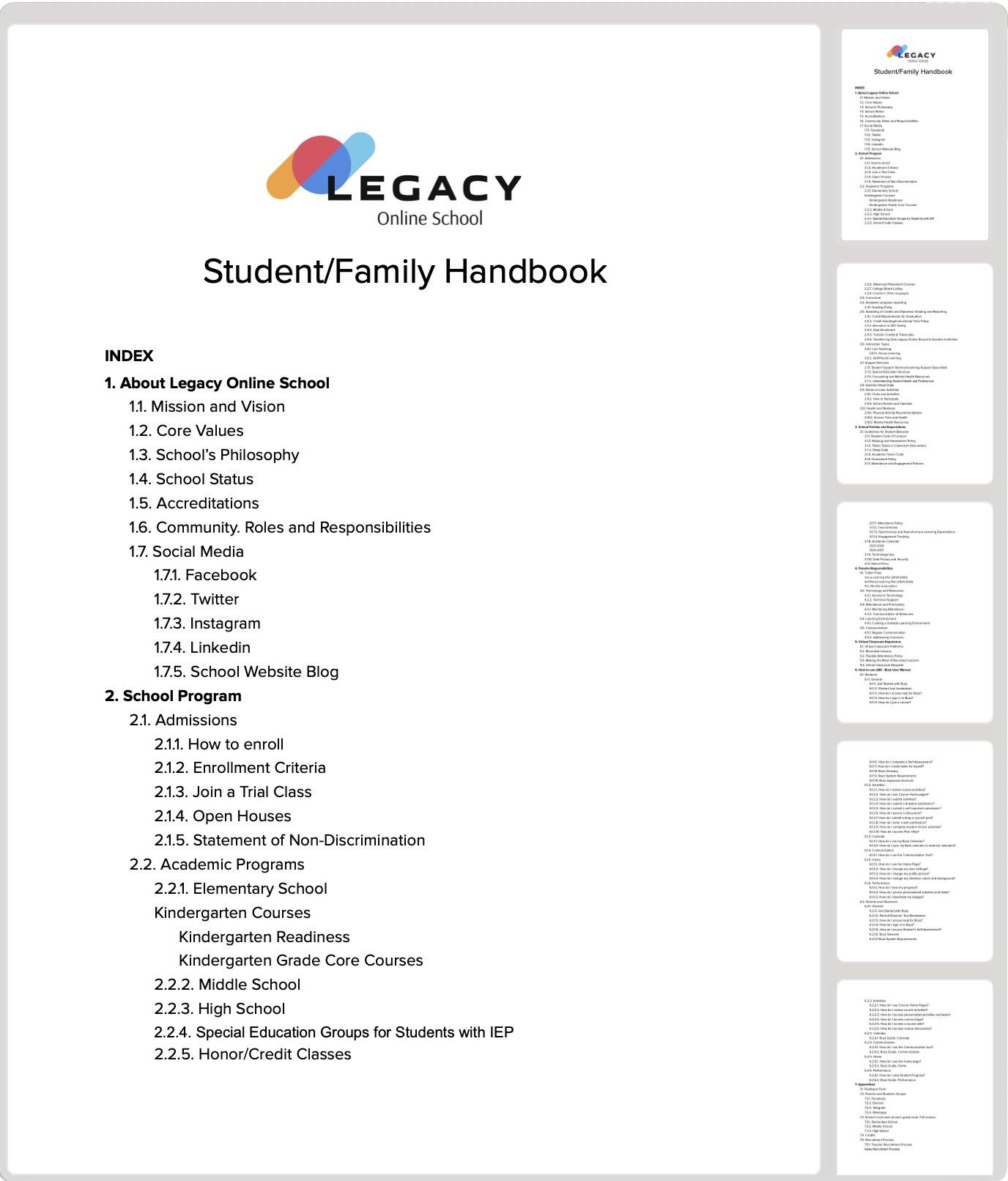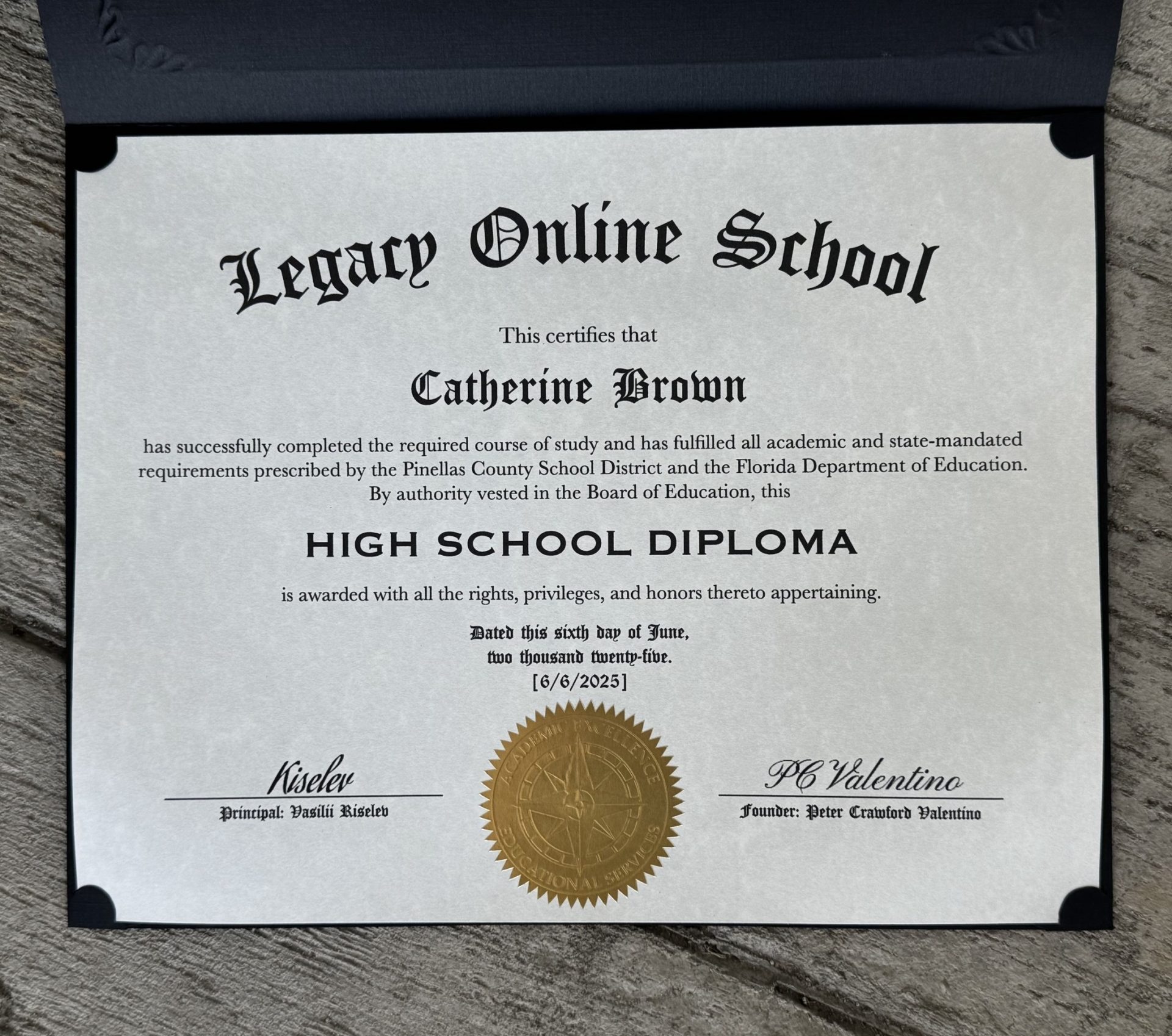Discover the Best Online Kindergarten Programs for Your Kindergarten Student
Children prepared for school in kindergartens often learn better and feel more comfortable. Traditional kindergarten isn’t convenient for all families, but we will talk about an alternative option, online kindergarten and its programs.

What Is an Online Kindergarten Program
Let’s take a closer look at what an online program from such a kindergarten entails.
How Does Online Learning Differ from Traditional Kindergarten
Traditional kindergarten requires children to attend physically, follows state programs, and does not offer a high level of personalization, as teachers often work with large groups and address children at a general level.
Online learning provides more freedom and personalization. Children don’t need to commute to kindergarten physically. Kids can study from home, which increases safety since something could happen on their way to kindergarten. Kids can also adjust their study schedules if they wish. Every child receives 100% of the teacher’s attention, as the groups are small, allowing the teacher to spend time with each child, address their challenges, and adapt the program to their needs.
What Are the Benefits of Homeschool Kindergarten
Homeschooling offers many advantages for children and parents. Children at home are not exposed to the dangers of the streets. Homeschooling allows families to set up a room specifically designed for learning. Most students require a distraction-free space. Students with special needs may need additional programs and details, which can be accommodated at home easily.

A homeschool curriculum means freedom. Children, together with their parents, decide on the lesson plan and how they will learn. Parents can either take on the role of teachers themselves or use the support of an online school for their children’s education. Legacy Online School has been supporting homeschooling families for several years, helping homeschool children outperform students in traditional schools.
What Can Parents Expect from an Online Kindergarten Curriculum
Parents can expect a strong, personalized learning experience with flexible scheduling options for kids. The curriculum is designed to equip children with all the necessary knowledge to transition to elementary school successfully. Lessons include engaging theoretical material as well as many interactive activities and games. Children explore different programs and prepare for what lies ahead in their education.
Personalization is a standout feature of this curriculum. Groups are small, allowing teachers to give individual attention to each child. This attentiveness helps identify areas where a child struggles quickly and adapt the materials to their specific needs.
Families have the freedom to decide when and how learning will take place, with the option to adjust schedules if circumstances change. This flexibility is a lifeline for traveling families and those with students who have special needs.
How to Enroll in an Online Private School
Here are some tips for those who have decided to enroll their child in an online private kindergarten.

What Are the Steps to Enroll in an Online Kindergarten Program
Exact enrollment requirements can be found on the chosen kindergarten’s website. The general requirements you encounter usually include:
- Completing an application
- Talking with a school representative
- Signing a contract with the school
- Paying the school’s fee
Contact the kindergarten you’re interested in, so their staff can assist you with the enrollment process.
What Documents Are Required for Enrollment
Documents for the enrollment process typically include:
- Birth certificate
- Proof of residency
Contact the kindergarten to learn more.
When Is the Best Time to Enroll Your Kindergartener
This question doesn’t have a definitive answer. Parents need to communicate with and observe their child to determine if it’s the right time to enroll them in kindergarten.
Age is an important factor to consider. Starting too early, especially if the child lacks basic skills such as understanding speech, may indicate it’s better to wait until the child grows a bit older and develops those skills. The optimal age is generally considered to be 5 years old, as by this time, children have usually developed enough to be ready for kindergarten. Parents may choose to enroll their child a little earlier or later, depending on the skills and readiness the child demonstrates.
What Should You Look for in a Kindergarten Curriculum
Families should ensure they are enrolling their child in a strong kindergarten providing the necessary academic foundation and support. Families can determine if the necessary support will be provided by reviewing the curriculum.
How Do Learning Objectives Shape the Kindergarten Year
Teachers set clear learning objectives with the overall goal of helping children move closer to acquiring the knowledge and skills needed for school within a year.

Each subject defines what children should master within a month and what they should achieve by the end of the year. Teachers pay close attention to each child, ensuring despite any difficulties, every student reaches the planned outcomes.
Children are introduced to sounds, letters, and numbers, learning how to use them effectively to interact with others. Clear goals by the end of the year allow kids to master the materials and knowledge needed to confidently communicate with classmates and understand basic concepts.
What Subjects Are Typically Covered in a Kindergarten Online Program
Such programs include all the basic subjects preparing children for school:
- Children learn numbers and basic operations, preparing them for studying math
- They explore nature and animals around them and conduct small, engaging experiments to get ready for science lessons
- They study sounds and letters, expand their vocabulary, and get introduced to the basics of language arts
- Kids learn the fundamentals of geography and cultural differences, getting an understanding of social studies
- Teachers include lessons fostering social-emotional learning, helping children understand how to behave in social settings
- Children engage in different creative activities, helping them express themselves better
How Does Personalized Learning Enhance the Learning Experience
Online kindergarten includes personalization as a core feature. Personalization is achieved through small group sizes and the professional training of teachers. Educators pay attention to each child and, if necessary, adapt the general curriculum in certain areas to help the child overcome challenges and achieve their best results.
How Does an Online Kindergarten Program Work
Let’s take a closer look at how programs work in online kindergarten.
What Types of Kindergarten Classes Are Available Online
Children have different classes to develop in a balanced way. Some lessons focus on learning theory in core subjects. Other lessons include interactive tasks, games, and discussions. Children can also sign up for additional creative classes if they wish. This variety of classes ensures children remain interested in learning and absorb the material effectively.
How Are Lesson Plans Structured in an Online Environment
Balance lies at the core of lesson plans. Teachers design lessons to ensure children get an appropriate mix of theory, practice, games, and discussions with classmates. Each module includes knowledge checks and detailed feedback from teachers. This structure makes learning engaging for children and provides not only knowledge but also personal skill development.
The lessons are diverse and cater to different learning styles. Kinesthetic learners enjoy active games, visual learners benefit from videos and text materials. Auditory learners use audio recordings. Lesson plans following this approach set children on a path to success.
What Role Does a Learning Coach Play in Online Learning
Learning coaches are guides for students in kindergarten, elementary, middle, and high school. These experts are always ready to answer any questions and share tips beyond standard knowledge. Learning coaches ensure students receive the necessary support to meet academic standards and offer advice on how best to apply their knowledge in further studies and future careers
What Are the Key Features of a Successful K12-Powered Online School
You can determine if an online school is good enough for your child by paying attention to several factors specific to such schools.
What Makes a K12 Private Academy Stand Out
Such schools stand out from traditional ones due to the flexibility and attention they provide to children. They adhere to high educational standards, just like traditional schools, but offer greater opportunities for modifications. Teachers consider the unique needs of children and, if necessary, modify the curriculum to help students better understand the material.

Private academies focus not only on the academic development of children but also on building personal skills helping them navigate society. These academies provide strong support to families, ensuring parents are always informed about their child’s progress and can decide whether they want to be more or less involved in their child’s education.
How Does the K12 System Support Kindergarteners
The K12 system provides strong support to kindergarteners. Children get a curriculum aligned with the latest state educational standards and enjoy a great deal of flexibility. Kids can decide how their lessons will look, when they will study, and make adjustments as circumstances change.
This curriculum, combined with teacher guidance, offers a high level of personalization. Teachers adapt the materials to help children overcome any difficulties. The curriculum also provides many valuable resources for parents and children, ensuring learning is enjoyable for the kids and parents stay informed about their progress.
What Innovative Tools Do Online Schools Provide for Hands-On Learning
Students and parents have access to many innovative tools enhancing learning, particularly hands-on activities.
Online interactive platforms replicate the educational process of a traditional school in an online setting, offering greater flexibility. These platforms include video-based tasks, where children follow along and engage in physical activities and games directly at home.
Augmented reality (AR) and virtual reality (VR) tools allow children not just to observe but to fully immerse themselves in the theme. Children can explore the nature of a particular country and literally dive into the experience, seeing and living it vividly.
These are just a few examples of the tools available. More tools emerge each year as technology continues to advance and improve.
How Can You Support Your Child’s Learning in Kindergarten
Online learning is not as simple as it may seem, which is why parents should fully support their child. Here are a few tips on how parents can provide support.
What Activities Can Help Your Kindergarten Student Thrive
Kindergarteners will achieve even better results if they are given a variety of activities. Parents can read storybooks with them, which will improve their reading skills, vocabulary comprehension, and imagination. Teachers and parents should include more games and physical activities. Children can conduct small experiments and play with their classmates. These activities will help them understand the material better and improve their relationships with other children. It is important to diversify children’s activities so every child finds something they enjoy the most and stays engaged in learning.
How to Create a Hands-On Learning Environment at Home
Families often designate a separate room for such purposes, making it easier for the child to focus on learning and have everything they need within reach. A good solution is to include different educational items in the room, such as building blocks, counting sticks, and other items.
Families also work on creating a virtual environment for the child. It is important to install a variety of helpful video lessons, interactive tasks, and games on the child’s device. Kids can participate in a range of activities from home by engaging with these materials. These activities improve retention and help develop endurance and personal skills.
What Resources Are Available for Kindergarten Work
Parents should contact the administration of the kindergarten they have chosen to learn what the kindergarten can offer. Kindergartens often have many internal resources aimed at improving children’s learning and supporting families.
Parents can also use free online resources for kindergarten independently. They can use Google, specify what they are looking for, and access websites offering the necessary materials. Parents can find curriculum options, additional activities, and much more on websites supporting kindergarten development.






















